At The Howard, we are committed to using our best endeavours to make school accessible for all of our students. We are extremely proud of our provision and the team work tirelessly to ensure that what we offer is high quality and impactful. Any intervention is designed to encourage students to become successfully independent with their learning, thus enabling self-propelled learners, supported to reach their potential.
Our Staff
The Howard School's SENCo is Mrs J Deakin, who can be contacted via the details below. All the information needed about our SEND support can be found here:
Mrs J Deakin, Assistant Principal (SENCo)
Phone: 01634 388765
Email: deakinj@thehowardschool.co.uk
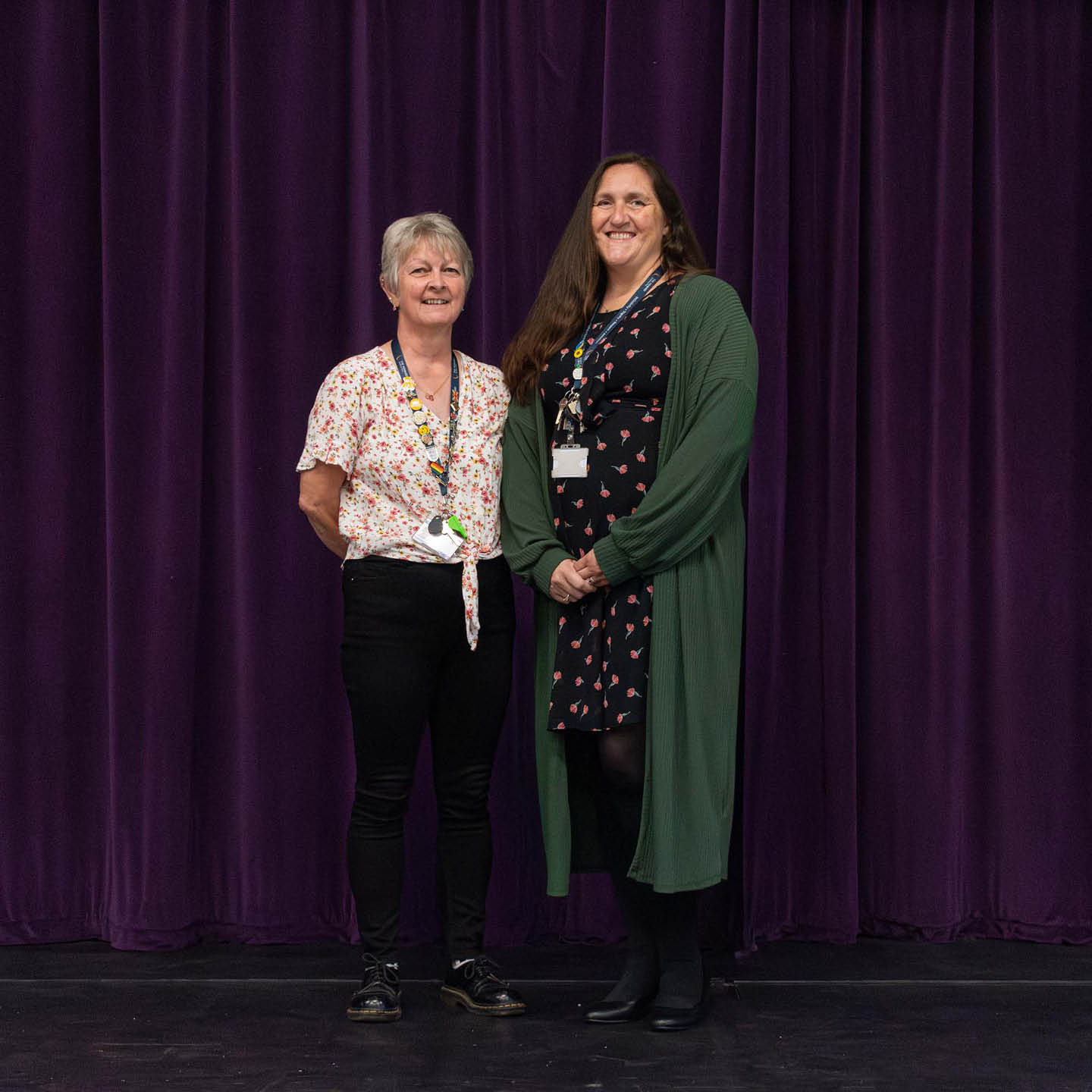
Intervention Leads
Jain Coleman & Sue Lea

Teaching Assistants
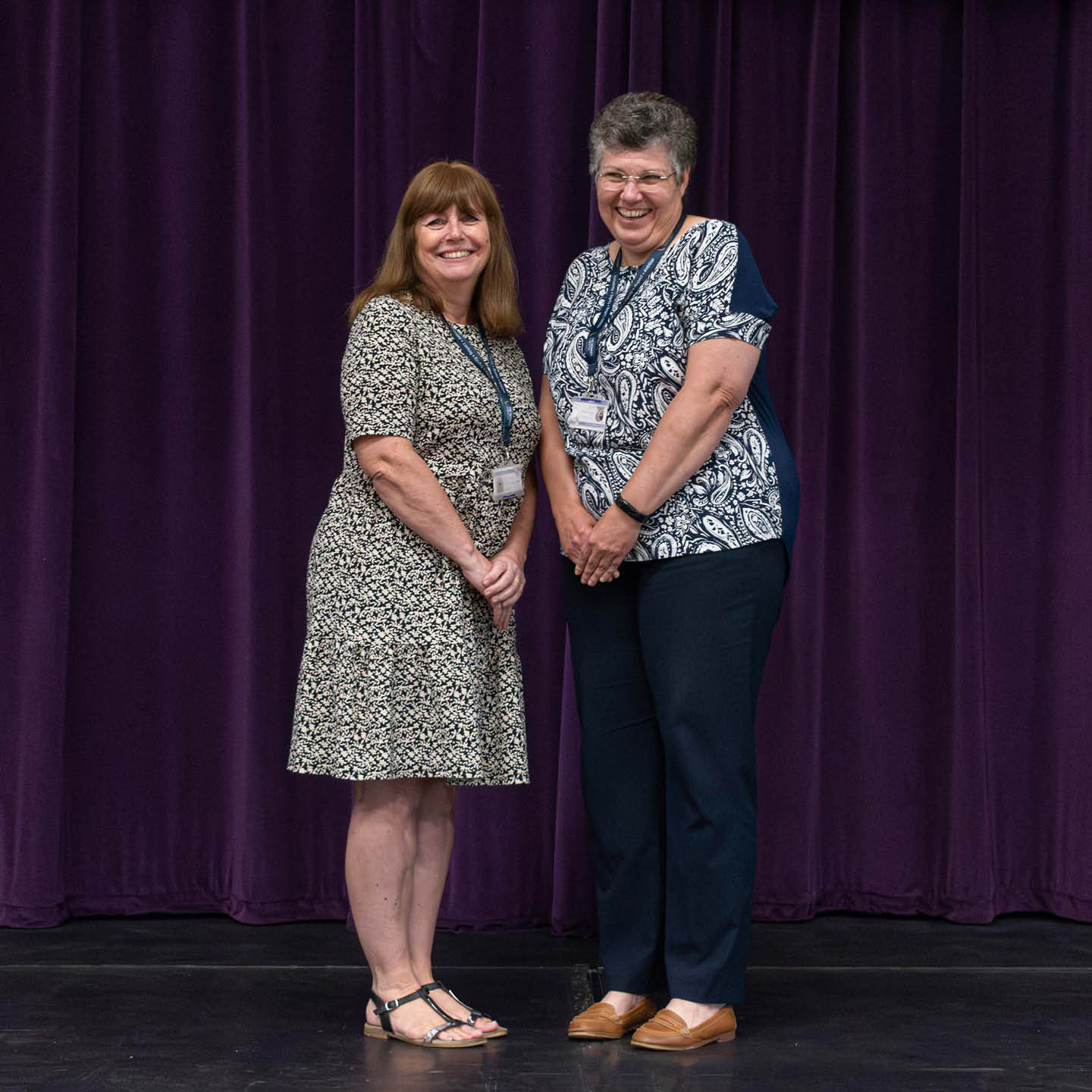
AEN Team
Trudy Franklin & Rebekah Greening
Important Documents
Frequently Asked Questions
Who are the Key Contacts at The Howard School for SEND?
SENCo: deakinj@thehowardschool.co.uk
(EHCPs, staff training, interventions, TAs, pupil progress)
AENCO: greeningr@thehowardschool.co.uk
(Access Arrangements, Looked After Children, referrals)
Pastoral Lead: mccomast@thehowardschool.co.uk
(Safeguarding, attendance, medical needs)
How do all of the different members of the team work together?
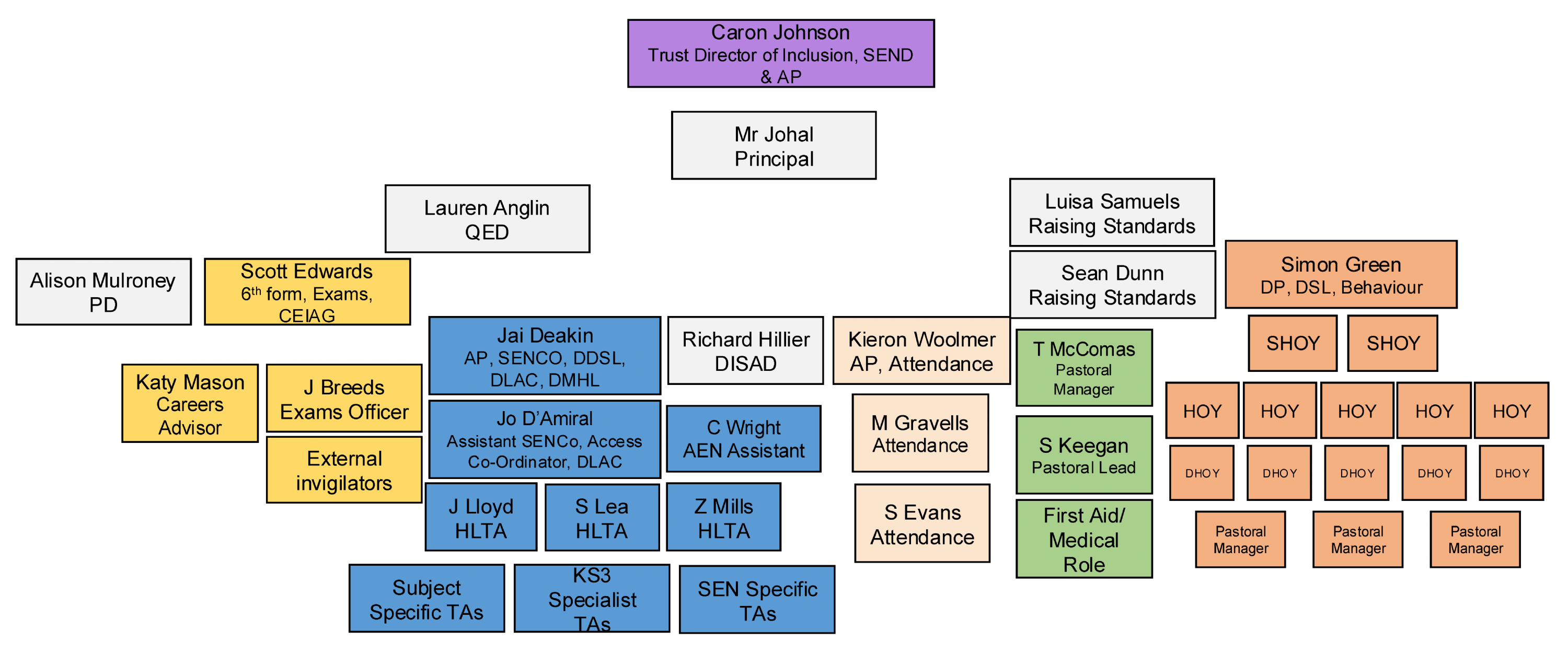
What types of Special Needs does The Howard cater for?
- We can make provision for most types of frequently occurring special educational need without an Education, Health and Care Plan (for instance dyslexia, dyspraxia, speech and language needs, autism, asperger’s syndrome, learning difficulties and behaviour difficulties)
- There are other kinds of special educational need which do not occur as frequently and with which the school is less familiar, but we can look into training and advice for this.
- The school also currently meets the needs of pupils with an Education, Health and Care Plan. Decisions on the admission of pupils with an EHCP are made by the Local Authority.
- The admission arrangements for pupils without an EHCP do not discriminate against or disadvantage disabled children or those with special educational needs.
Further information can be found on Page 5 of our SEN Information Report
What are the identification and assessment processes used for SEND at The Howard?
- We monitor the progress of all pupils three times a year to review their academic progress.
- Where progress is not sufficient, even if special educational need has not been identified, we endeavour to put in place extra support to enable the pupil to catch up.
- We use a range of assessments such as: Suffolk Reading Test yearly, Lucid Exact for Access Arrangements in Y9-11, Boxall Profile when applicable.
- For pupils making inadequate progress, and in consultation with parents, we will use a range assessment tools to determine the cause of the learning difficulty.
- The purpose of this more detailed assessment is to understand what additional resources and different approaches are required to enable the pupil to make better progress. These will be shared with parents, put into a SEN support plan (IEP) and reviewed regularly, and refined/revised if necessary.
- If the pupil is able to make good progress using this additional and different resource (but would not be able to maintain this good progress without it), we will continue to identify the pupil as having a SEN. If the pupil is able to maintain good progress without the additional and different resources he or she will not be identified with SEN.
- When any change in identification of SEN is changed, parents will be notified. We will ensure that all teachers and support staff who work with the pupil are aware of the support to be provided, and the teaching approaches to be used.
Further information can be found on Page 6 of our SEN Information Report
How does The Howard evaluate the effectiveness of their provision?
- Each review of the SEN support plan (IEP) will be informed by the views of the pupil, parents and class/subject teachers and the assessment information from teachers which will show whether adequate progress is being made.
- For pupils with or without a statement of special educational needs/EHCP there will be an annual review of the provision made for the child, which will enable an evaluation of the effectiveness of the special provision.
- Every pupil in the school has their progress tracked six times per year. In addition to this, pupils with special educational needs may have more frequent assessments of reading age, spelling age etc in order to judge progress against targets set on IEPs.
- If these assessments do not show adequate progress is being made the SEN support plan will be reviewed and adjusted.
Further information can be found on Page 7 of our SEN Information Report
What is our approach to teaching pupils with SEN?
- High quality teaching, differentiated for individual pupils, is the first step in responding to pupils who have or may have SEN.
- At The Howard School, the quality of teaching is judged to be Good in our last Ofsted inspection.
- We regularly and carefully review the quality of teaching for all pupils, including reviewing and, where necessary, improving, teachers’ understanding of strategies to identify and support vulnerable pupils and their knowledge of the SEN most frequently encountered.
- We follow the Mainstream Core Standards advice developed by Kent County Council to ensure that our teaching conforms to best practice.
- The school employs additional teaching approaches, as advised by internal and external assessments e.g. one to one tutoring/ precision teaching/mentoring, small group teaching, use of ICT software learning packages.
Further information can be found on Page 8 of our SEN Information Report
How does the school adapt the curriculum and learning environment?
- We follow the advice in the Mainstream Core Standards on how to adapt the curriculum and the learning environment for pupils with special educational needs.
- We also incorporate the advice provided as a result of assessments, both internal and external, and the strategies described in statements of special educational needs/Education, Health and Care Plans.
Further information can be found on Page 8 of our SEN Information Report
What additional support is available?
- As part of our budget, we receive ‘notional SEN funding’.
- This funding is used to ensure that the quality of teaching is good in the school and that there are sufficient resources to deploy additional and different teaching for pupils requiring SEN support.
- The amount of support required for each pupil to make good progress will be different in each case. In very few cases, a very high level of resource is required.
- The funding arrangements require schools to provide up to £6000 per year of resource for pupils with high needs, and above that amount the Local Authority should provide top up to the school by application from the school using evidence of sustained need.
Further information can be found on Page 9 of our SEN Information Report
What support is available for improving emotional and social development?
- We understand the importance of enabling all pupils to develop emotional resilience and social skills, both through direct teaching, for instance PSHE and indirectly with every conversation adults have with pupils throughout the day.
- For some pupils with the most need for help in this area, we also can provide the support such as access to a counsellor, a mentor, external referrals (such as NELFT), time-out card etc, depending on the individual need.
Further information can be found on Page 9 of our SEN Information Report
What are the arrangements for consulting young people/parents/carers with SEN and involving them in their education?
- All parents of pupils at The Howard School are invited to discuss the progress of their children at the annual parents' evening.
- A written report is received between 2-3 times per year.
- In addition, we are happy to arrange meetings outside these times.
- In addition to this, parents of pupils with a statement of SEN/EHCP will be invited to contribute to and attend an annual review, which, wherever possible, will also include other agencies involved with the pupil.
- When a pupil has been identified to have special educational needs because special educational provision is being made for him or her, the pupil will be consulted about and involved in the arrangements made for them as part of person-centred planning.
- Parents are likely to play a more significant role in the childhood years with the young person taking more responsibility and acting with greater independence in later years.
Further information can be found on Page 11 of our SEN Information Report
What arrangements are in place for handling complaints from parents/carers of students with SEND about the provision made at The Howard?
- The normal arrangements for the treatment of complaints at The Howard School are used for complaints about provision made for special educational needs.
- We encourage parents to discuss their concerns with the subject teacher, Head of Year, SENCo, Head of Pastoral Care or Headteacher to resolve the issue before making the complaint formal to the Chair of the governing body.
- If the complaint is not resolved after it has been considered by the governing body, then a disagreement resolution service or mediation service can be contracted.
- If it remains unresolved after this, the complainant can appeal to the First–tier Tribunal (Special Educational Needs and Disability), if the case refers to disability discrimination, or to the Secretary of State for all other cases.
- There are some circumstances, usually for children who have an EHCP, where there is a statutory right for parents to appeal against a decision of the Local Authority. Complaints which fall within this category cannot be investigated by the school.
Further information can be found on Page 12 of our SEN Information Report
Useful Links
| Topic | Link | |
|---|---|---|
 |
SEN Support Service |
|
 |
Medway Child Health Team for Parents | https://www.youtube.com/channel/UCNX_0oPAOTrHB0jDODWeogg |
 |
Speech and Language |
https://www.medwaycommunityhealthcare.nhs.uk/speech-and-language-resources |
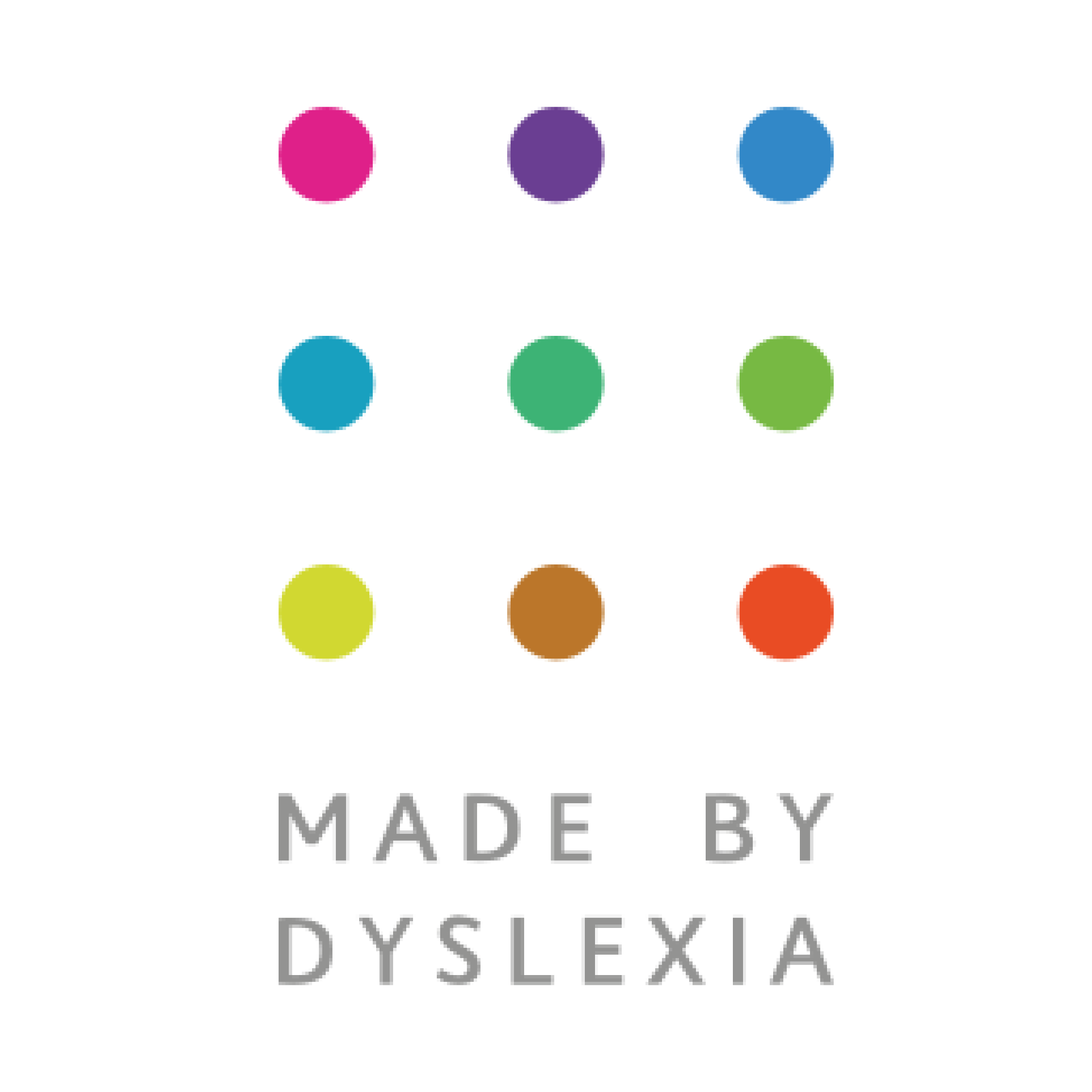 |
Dyslexia |
|
 |
ASD |
|
 |
Medway Small Steps Support |
|
 |
ADHD |
https://www.kentcht.nhs.uk/service/asd-adhd/adhd-information-and-support-services/ |
 |
Sensory Processing |
https://www.kentcht.nhs.uk/childrens-therapies-the-pod/neurodivergence/sensory-processing-pathway/ |
 |
Visual Impairment |
|
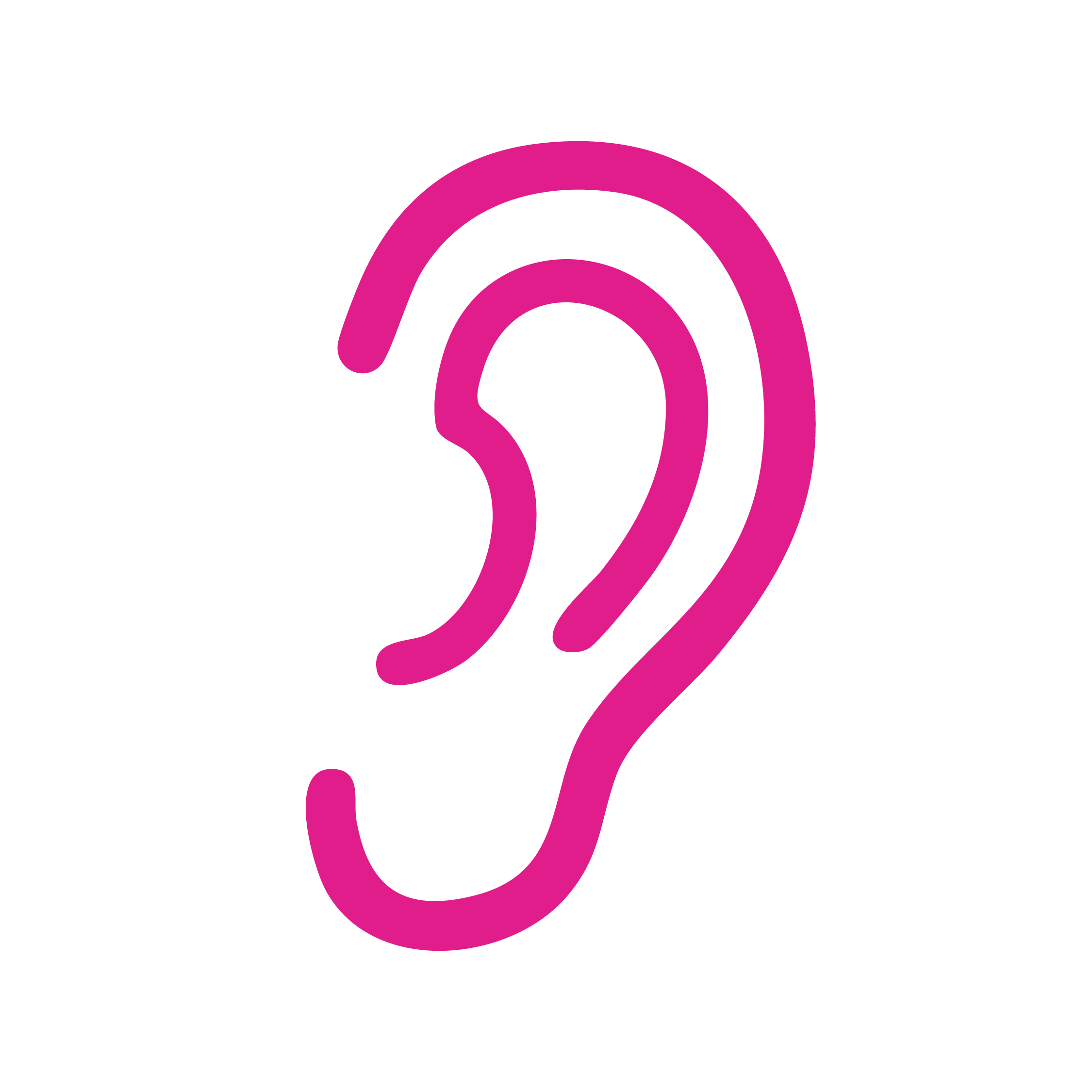 |
Hearing Impairment |
|
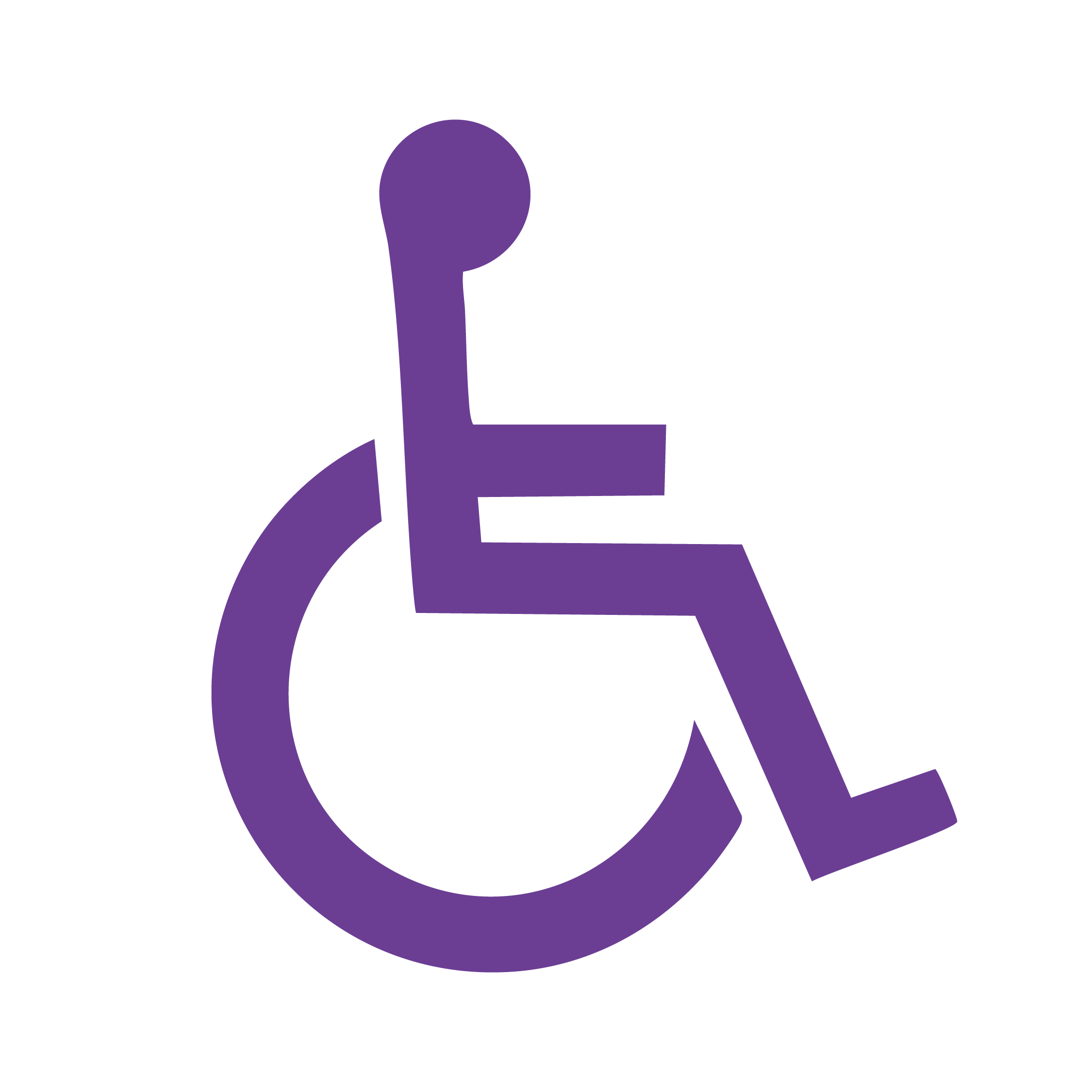 |
Physical Difficulties |
|
 |
Medway Local Offer |
|

